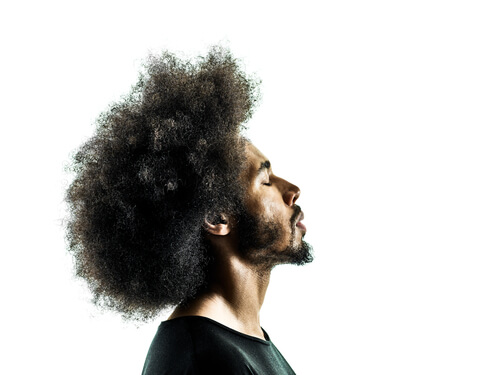Do you find that you struggle with managing your emotions? Are your reactions deemed too explosive, intense, or inappropriate?
If this is the case, you may find yourself relating to individuals with emotional dysregulation. This means that you may have an impaired ability to control and manage your emotional responses, whether it’s anger, frustration, sadness, or irritability.
Emotional dysregulation is often noticed in childhood, and it can be resolved in adolescence, when a person learns adequate self-regulation strategies and skills.
However, dysregulation can often continue into adulthood. When this happens, people can experience a variety of struggles, including issues with romantic relationships, professional and educational performance, and more.
There are a variety of options for individuals and couples struggling with relationship management due to emotional dysregulation, including a variety of workshop activities, coaching sessions, and self-help strategies. Keep on reading to find out what emotional dysregulation is and how you can deal with it.
What Causes Emotional Dysregulation?

How does emotional dysregulation happen? Why do some people manage to stay calm and collected while others struggle not to choke up or rage at the first sign of a problem?
Well, there are several possible causes of emotional dysregulation in adults. The one cause that stands out is traumatic childhood experiences. This may mean neglect or abuse from a parent or caregiver.
Additionally, you may also develop emotional dysregulation because your parent or caregiver also struggled with it. If you aren’t taught to regulate your emotions in your childhood, it is likely that you will experience issues with them in adulthood, since kids aren’t born with natural emotional regulation skills.
Can Anxiety Cause Emotional Dysregulation?
Emotional dysregulation can also be a sign as well as a risk factor for some mental health disorders, including anxiety.
If you have emotional dysregulation, you may be prone to anxious behaviors that might interfere with your social and professional interactions. For instance, may have an intense fear of abandonment in your romantic relationships, experiencing anxiety whenever you and your partner are apart. This can distance you from your partner and further exacerbate your anxiety.
What Does Emotion Dysregulation Look Like?
If you have emotional dysregulation as an adult, you might experience a range of issues with controlling your impulses and reactions. Some examples may include the following:
- Disturbed sleeping.
You may sleep too much or too little, or you might have an inconsistent sleeping schedule due to your emotional dysregulation.
- Trouble letting go.
You may hold grudges or have difficulties letting go of negative experiences.
- Taking things too seriously.
Do you tend to blow arguments out of proportion? This can have a detrimental effect on your romantic relationships.
- Issues with conflicts.
If you have emotional dysregulation, you may struggle resolving conflicts or speaking your mind.
- Anger issues.
Do you find yourself struggling with keeping your anger in check? This is also a common symptom of emotional dysregulation.
- Mood instability.
You may experience shifting, unstable moods that can affect your romantic relationships and friendships.
If you need more concrete examples, here’s what emotional dysregulation can look like:
- You resort to emotional eating or cry all night if your partner doesn’t go out with you or goes out with their friends.
- You feel isolated at a family dinner, while everyone else seems to be having fun. You go to the bathroom to cry or return home and overeat.
- You struggle identifying your emotions when you become upset. Your anger or sadness can overwhelm or confuse you.
Can You Fix Emotional Dysregulation?
Dealing with emotional dysregulation can be a difficult and lengthy process. Still, you can move from unstable and intense emotions to clear, calm thinking. Here’s what you can do:
- Focus on the one single idea that is important to you and work towards bringing it to life. Make sure that the idea is in line with your core values.
- Learn how to identify your emotions and differentiate maladaptive patterns from those that serve you.
- Recognize the triggers for your alarm reactions and impulsive behaviors. Keep in mind that these triggers can be incredibly subtle.
- Try to notice the difference between your alarm-driven thinking patterns and the way you make sense of things when you’re calm.
- Think about your goals and try to see which are driven by your unregulated emotions and which come from clear and thoughtful consideration.
- Identify which life choices serve you in the long run. Learn how to break old relationship patterns and cherish healthy boundaries.
- Learn conflict resolution strategies and build your tolerance for managing difficult or uncomfortable feelings.
- Start being proactive. Take action toward your goals and remind yourself that you can get there with a bit of time and effort.
- Speak with a professional relationship coach to get insightful advice and guidance on regulating emotions and facilitating behavioral change.
Even if you feel like there’s no escaping your emotions, know that it is possible to clear your thoughts and ground yourself. With appropriate support and a bit of motivation, you can start replacing your maladaptive relationship patterns with new ones, designed to serve you and bring you closer to emotional balance. Using the right strategies can help you build a better foundation for healthy relationships as well as improve your overall well-being.
Looking For A Romantic Relationship Building Skills Workshop? Call PIVOT Now

PIVOT is here to help you balance your emotions and develop strategies for clearer thinking. We bring you well-crafted coaching designed for individuals and couples, as well as a variety of relationship building skills workshops. Whether you are struggling with opening up to your partner or suffer from intense guilt in your relationship, our dedicated staff will be able to help you with expertise and kindness.
We have the compassion, knowledge, and experience to provide you with resources and skills that will bring you closer to better relationships with your romantic partners, friends, and family. Reach out to a PIVOT advocate now and take the first step towards a happier, more meaningful life



















